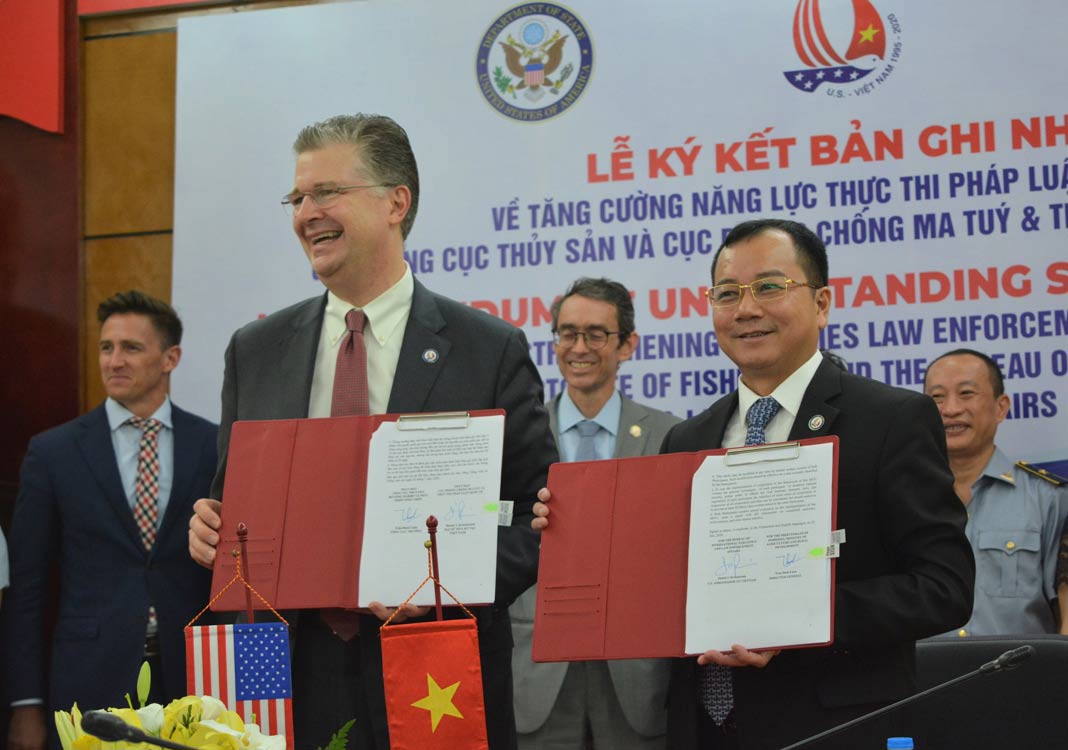HCMC – The U.S. Department of State’s Bureau of International Narcotics and Law Enforcement Affairs and the Vietnam Directorate of Fisheries under the Ministry of Agriculture and Rural Development signed a memorandum of understanding in Hanoi on Wednesday to not only help strengthen the latter’s fisheries management and law enforcement capabilities but to also ensure sustainable living marine resources and curtail illegal, unreported and unregulated (IUU) fishing.
The U.S. bureau will provide technical assistance to enhance the capacity of the Vietnam Directorate of Fisheries and the Vietnam Fisheries Resources Surveillance through information sharing, best practices and the execution of relevant technical programs and projects.
The agreement is also expected to foster greater cooperation among Vietnam, the United States and international law enforcement agencies to ensure sustainable living marine resources and combat IUU fishing.
“The United States has a great deal of experience in managing fisheries and enforcing regulations, which we are more than happy to share,” U.S. Ambassador to Vietnam Daniel J. Kritenbrink stated at the signing ceremony.
He added that the United States looks forward to working with Vietnam to improve the sustainability of the Southeast Asian nation’s fisheries department and support its fishermen against illegal intimidation.
The two sides have been collaborating to strengthen Vietnam’s capacity for fisheries management and enforcement through technical training, study visits and other assistance since 2015, noted Tran Dinh Luan, general director of the Vietnam Directorate of Fisheries.

The U.S. bureau plans to transfer to the Vietnam Fisheries Resources Surveillance a training facility at the Naval Region 5 in Phu Quoc Island off the southern province of Kien Giang next February to enhance the capacity of human resources for the Vietnamese agency and the local fisheries enforcement units in Vietnam’s 28 coastal provinces.
In October 2017, the European Commission imposed a yellow card on Vietnam, which warned the country that the European Union could ban its seafood products entirely unless effective measures were taken to halt IUU fishing.
The commission has made several key recommendations for Vietnam, which aim to improve the country’s regulatory framework and capacity to monitor its vessels and track product origin.
The two sides have been collaborating to resolve IUU fishing issues. Despite some progress being made, Vietnamese seafood exports to European markets have been on the decline.
As the Southeast Asian country looks to increase seafood exports and boost the industry, removing the yellow card remains a key task for the Government.
By Gia Phong









